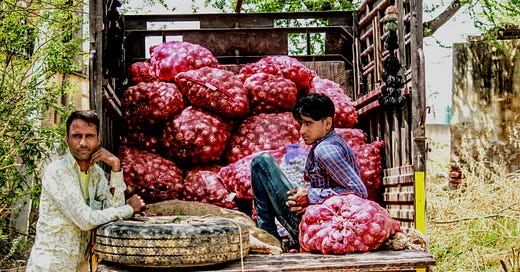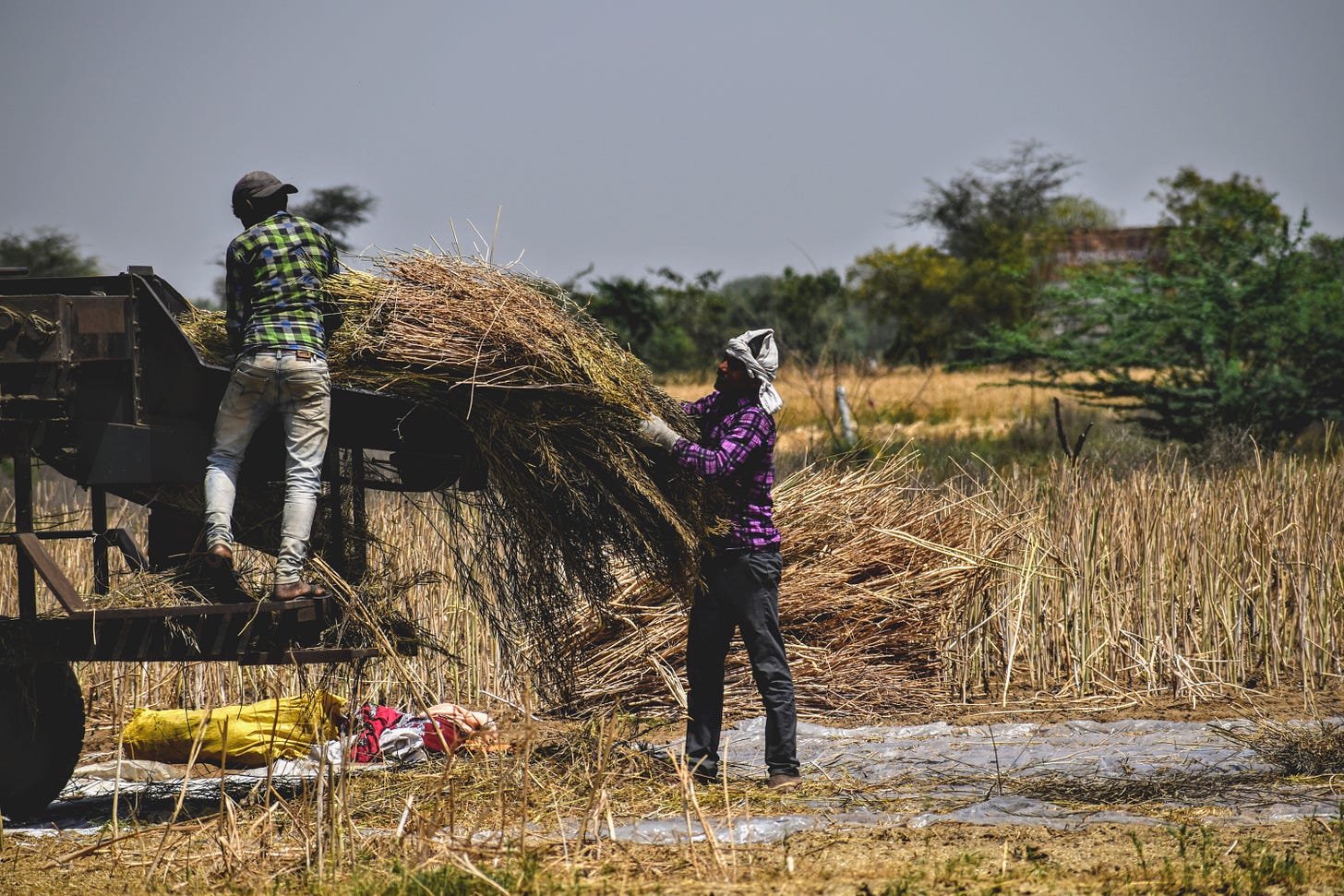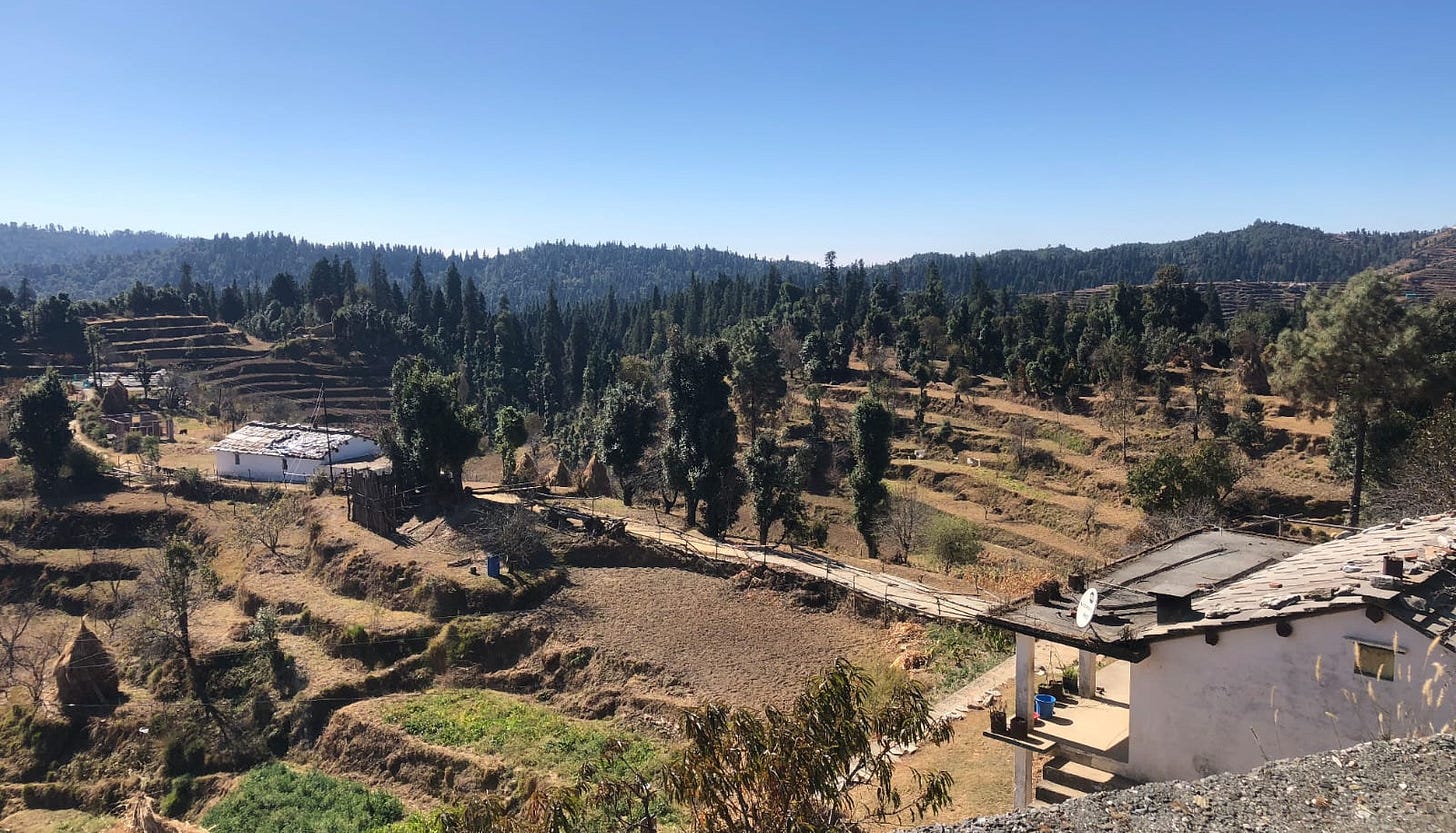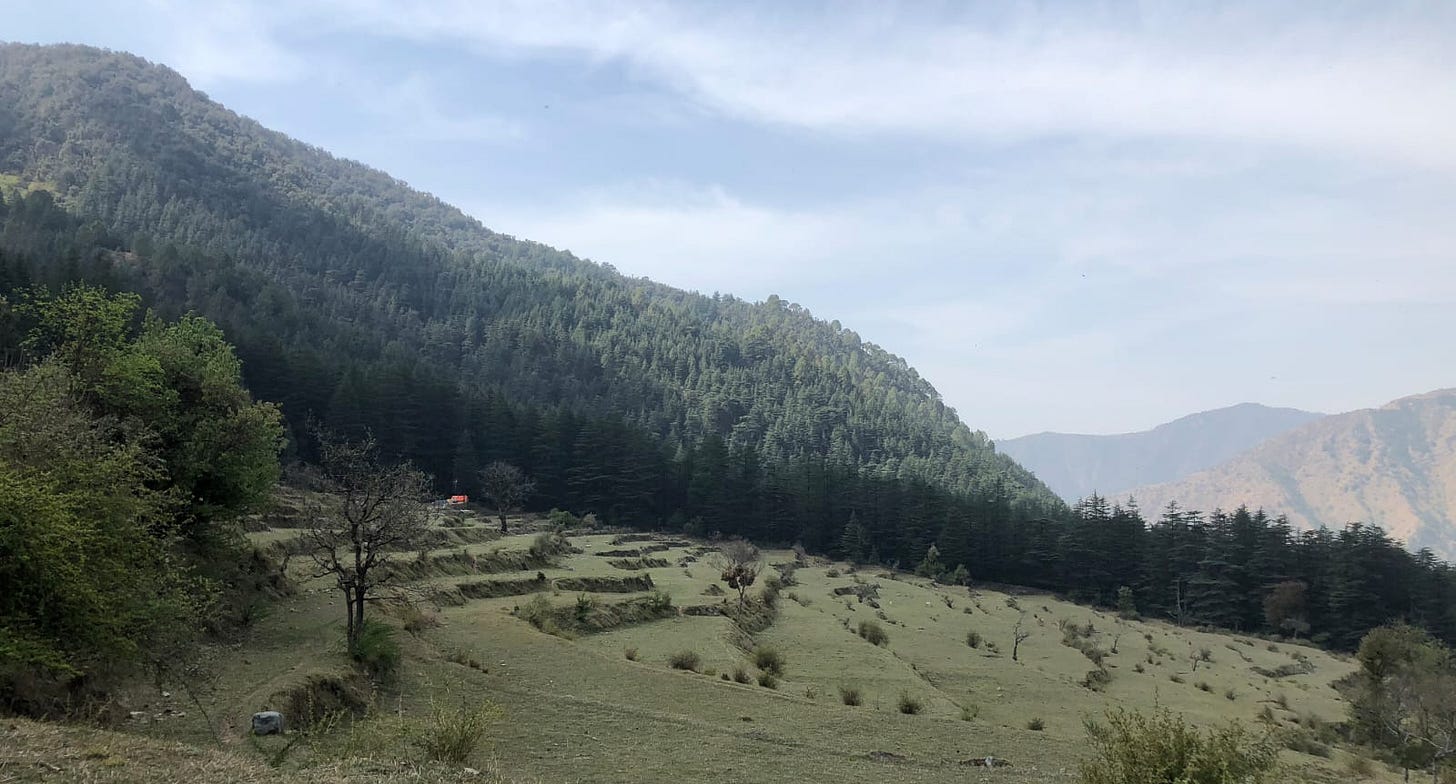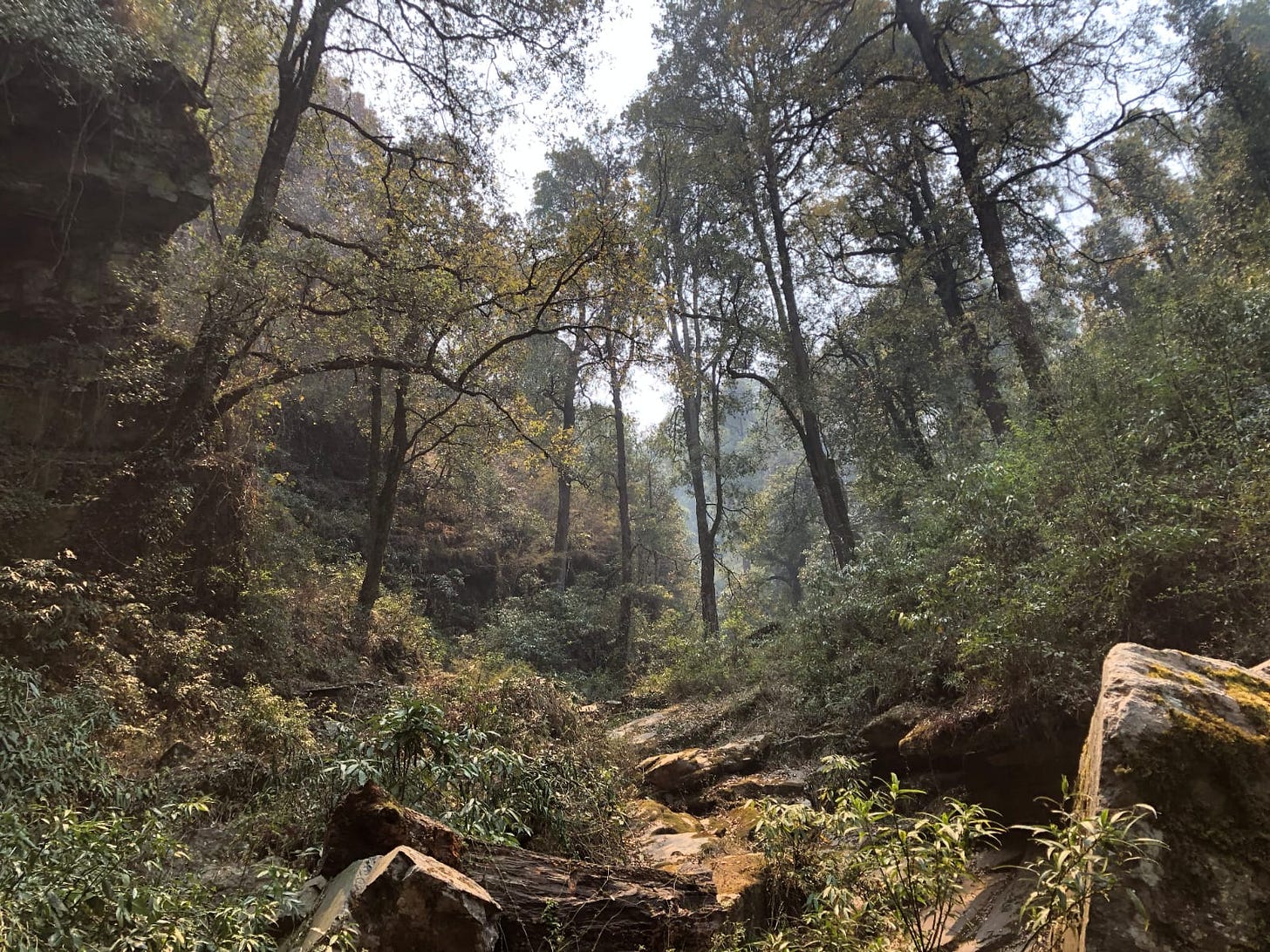Please see the course details below. Applications are now closed.
Context
Today we stand at a strange moment in the history of food. So many of us are no longer aware of where our food comes from, how it is grown, how it reaches us, and who all were involved in the whole process of bringing it to our table. There is an endless list of questions around everything we eat— did the milk processing unit maintain hygiene standards? Will the cooking fat affect my parent’s heart condition? What kind of preservatives and other additives were added to the food I’m giving my children? What kind of pesticides were used to grow the tomatoes in my salad? Why don’t the vegetables have any taste anymore?
While food prices have been climbing rapidly for consumers, our farmers’ incomes have been declining relative to other professions. According to the Situational Assessment Survey for Agricultural Households, 2019 the average income of a farm household was Rs 10,218 per month, with income from farming activities calculated to be Rs 27 per day. On top of this, farmers have been dealing with a range of mounting challenges from falling water tables to declining fertility in soils, from polluted water streams to climate change.
For the last several years, Indian farmers have been marching and protesting. It isn’t just farmers in India— farmers across the world from Canada to France to Germany have been expressing their discontent. At the same time, big agribusiness corporations rake in historic, record-setting profits. Who decides what the farmer will grow? Who decides the price they will get for their produce? Who decides the prices of the range of products lying on supermarket aisles?
So, behind the news headlines and TV discussions, what’s really happening to food? What has happened to our relationship with our food? What is happening at the farm? What are the problems of our farmers? What is it like to grow food out of the earth? Is the earth okay?
This 7-day course on Food and Agriculture will explore the fundamental questions underpinning food and how it is grown today through hands-on practice, lectures and discussions. It will look at the logic of agricultural supply chains and what they achieve. It will examine the conditions of our farmers and the state of agriculture and go into its history, political economy and ecology.
Course Format
This is a seven day residential course. We will accept between 10 to 15 participants for the program. Participants will stay at a modest ashram in a village in Ramgarh and partake in the lifestyle of Ashram which involves simple community living and helping with daily chores. Food and accommodation will be on campus.
The day will begin at 6 am. Mornings will be for working on the farm, which can be physically demanding. There will be a walk during the day, which will go up and down some mountain trails, requiring basic fitness and stamina. The major part of the course will consist of lectures on a number of topics relevant to understanding food and agriculture and related themes. There will be a few discussion sessions for participants to share their ideas and ask questions. Sessions will be scheduled till dinner time i.e 7 pm.
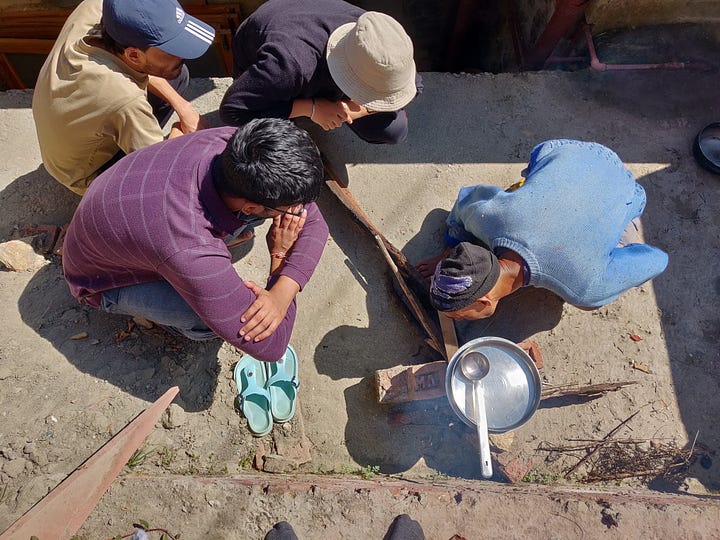
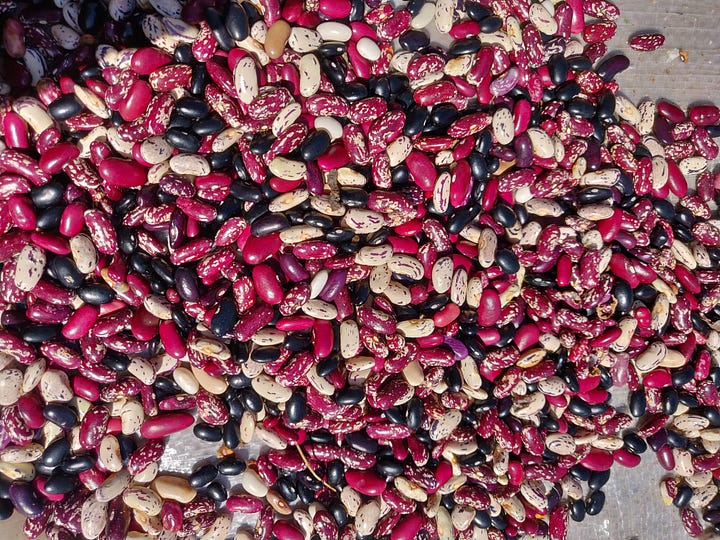
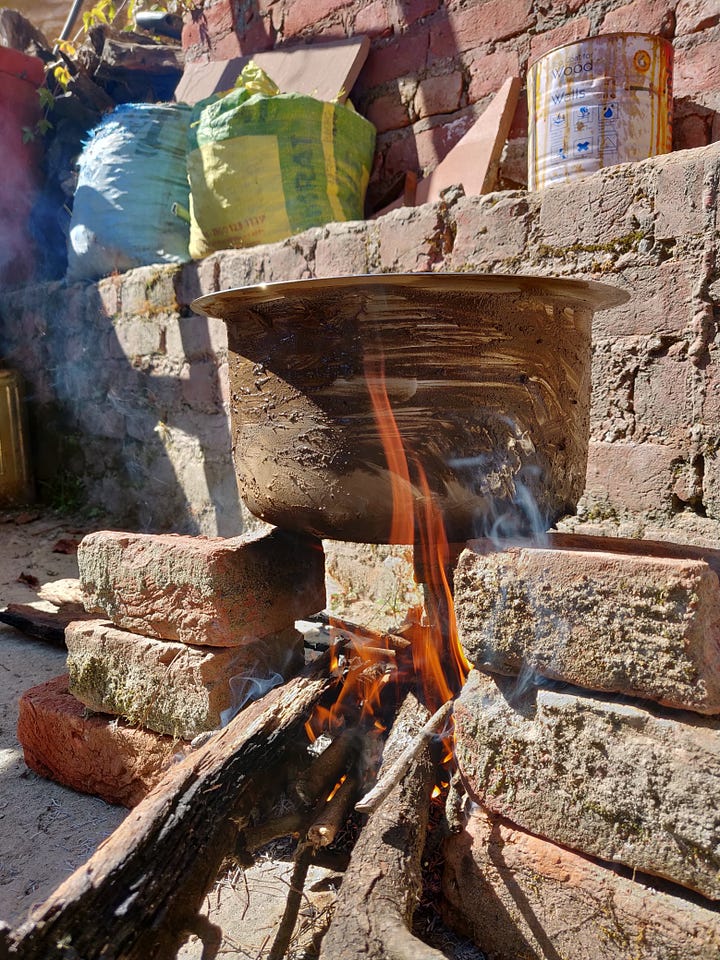
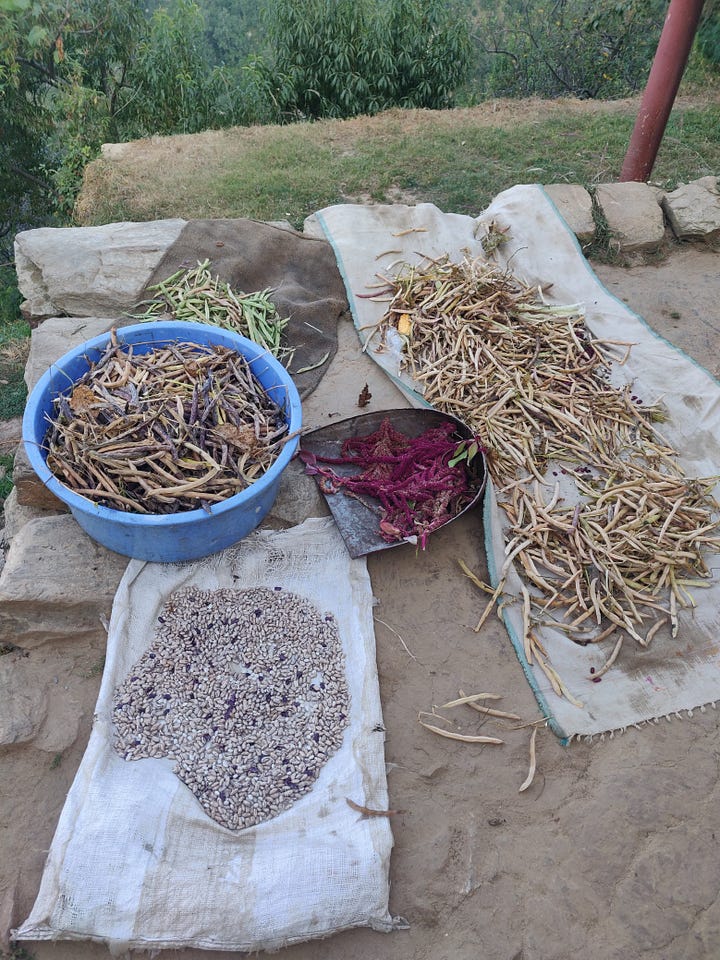
Course Content
The course will go into the details of the following topics:
Political economy of food and agriculture
History of food and agriculture
Ecology of food and agriculture
Stories of Commodities
Politics of Agrarian Knowledge
Language: The course will be delivered in Hindi and English, so comprehension of both languages will be helpful.
Venue
The program is hosted in a small hillside village located in Ramgarh Block of Nainital District. It is about 30 kms from Bhimtal, in the Kumaon region of Uttarakhand. Buses for the village are available from Kathgodam. The Ashram is not located on the road, it is at a small walk along a mountain path which can be a challenge if you have a physical condition that makes walking or climbing difficult.
Dates
The course will begin on 13th April (Sunday) and will end on 19th April 2025 (Saturday). You must reach the venue on the 12th, and plan your departure on the 20th. It is important that you attend the complete course from start to finish as each day builds on the previous one. Therefore, it is necessary to reach one day before the course begins and leave the day after it ends.
Food and Accommodation
Food and accommodation will be provided at the ashram. It will be simple and ashram style. Food will be simple home cooked vegetarian and occasionally cooked together. We will sleep on mattresses on the floor in dormitory accommodations with shared bathrooms and toilets. Bedding will be provided, but you may also bring your own bedsheets. Smoking and the use of intoxicants is prohibited. Participants have to be mindful of the local customs, traditions and beliefs of the village in addition to the regulations of the Ashram.
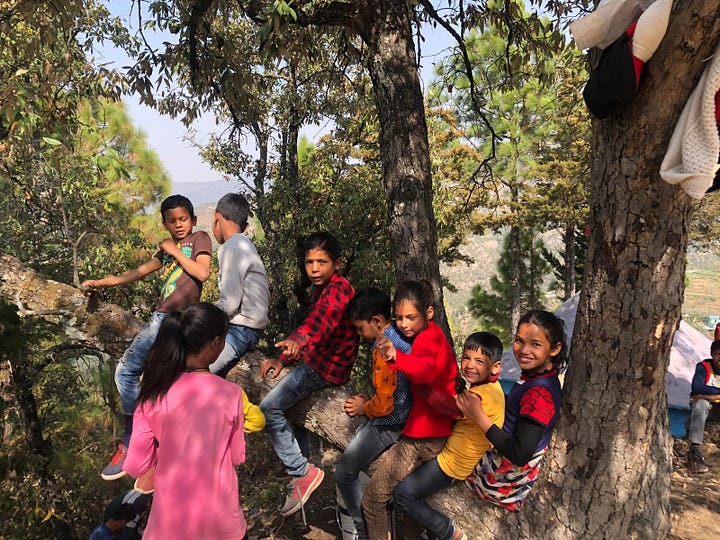
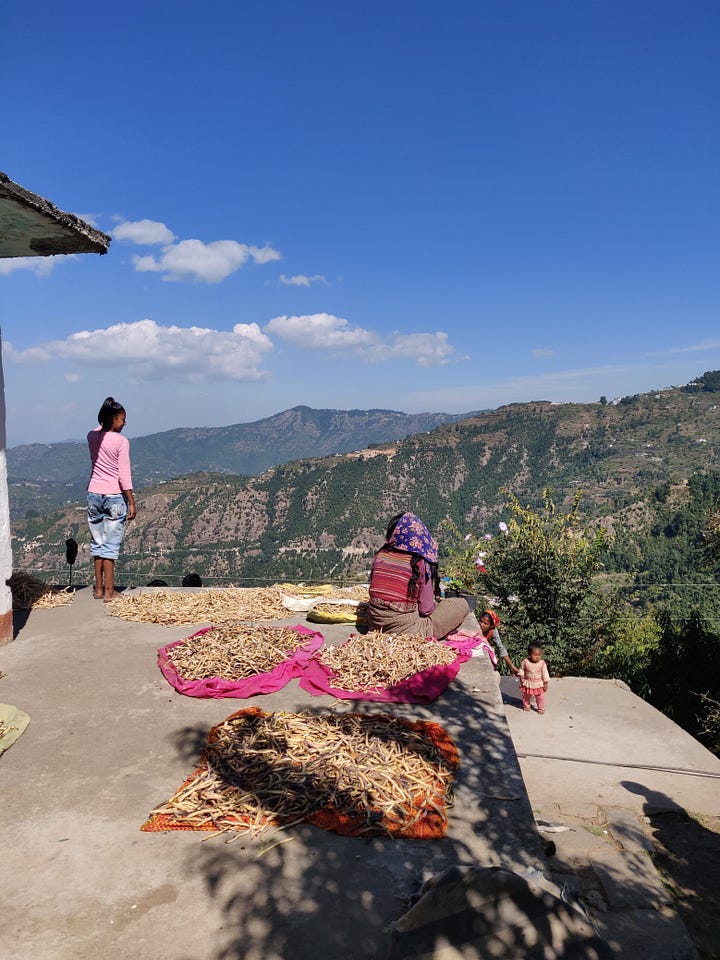
Costs and Fees
The Pagdandi Collective runs from the gifts (time, money and resources) of its well wishers. It is not run as a commercial business. We will continue to function as long as people feel we should be supported.
This gathering is offered as a gift from well wishers and those who have attended our programs before. After the completion of the course, you may offer your support in the form of Dakshina as per your wish and in whatever form.
Organising a course like this typically involves a money cost of Rs 14,000 per person and is made possible due to the time, resources and wisdom contributed by a number of teachers, organisers and volunteers.
If you are unable to attend this course, consider making a contribution towards organising this course. To do so, you may send a contribution to the UPI number 8056219285 or get in touch with us at pagdandi.collective@gmail.com
Preparation
There will be physical work and long walks on mountain trails. Please follow a basic daily exercise routine for at least two weeks before the course begins if you are not in the habit of physical work or exercise.
This course requires some prior preparation before the program. Please see this link for the preparatory readings and videos.
Applying for the Program
We have a limited number of seats in this program. This is an intensive course which will require some preparation. Please read the following essays before you fill the application form.
The last date to apply is 15th March, 2025. In case you are selected, we will communicate a confirmation of your participation by 20th March, 2025.
To apply for the course, click here.
Contact
For more information, you may write to us at pagdandi.collective@gmail.com

